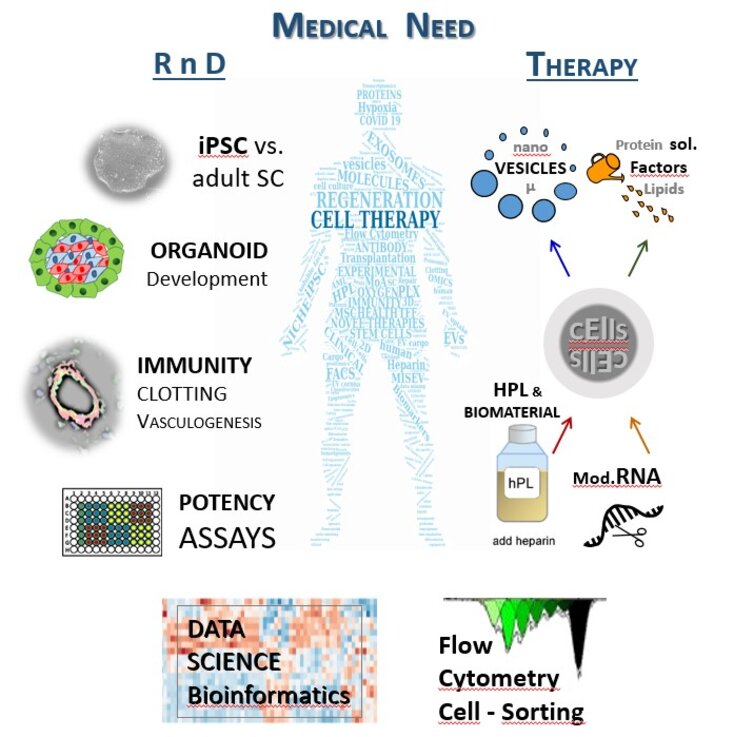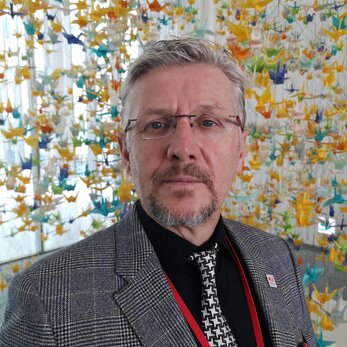Institute for Experimental and Clinical Cell Therapy
Director // Univ.-Prof. Dr. Dirk Strunk
Regenerative stem cell therapy is one of the promising fields of modern medicine. At the Institute for Experimental and Clinical Cell Therapy, we research three mechanisms of organ and tissue regeneration:
(1.) Organ Stem Cells: Stem cells can simultaneously self-renew through asymmetric cell division and form progenitor cells capable of proliferation and differentiation. These cells can contribute to the structural repair of the respective organ after damage. We analyze multipotent mesenchymal stem/progenitor cells (MSC) and endothelial colony-forming progenitor cells (ECFC) from blood, bone marrow, adipose tissue, and umbilical cord to better understand and utilize mechanisms of 'self-healing'. We also use induced pluripotent stem cells (iPSC) to study the differentiation and function of organ stem cells for the development of new drugs for better regeneration.
(2.) Mobilization: Stem cells can migrate through the blood to support the regeneration of damaged tissue. We research mechanisms of mobilization (drug-induced or stress-induced stem cell circulation). The sensitivity of our flow cytometry is currently about 0.001% (corresponding to a detection limit of 50-100 stem cells per mL of blood or tissue).
(3.) Transplantation: Stem cell transplantation can compensate for insufficient endogenous regeneration of damaged organs and tissues (including the immune system). To date, the transplantation of hematopoietic stem/progenitor cells (HSPC) is the only clinically proven successful procedure in stem cell therapy. We develop new, efficient GMP-compatible protocols for pre-clinical serum-free expansion (with human platelet lysate, HPL) and differentiation of stem cells for clinical application.
Univ.-Prof. Dr. Dirk Strunk
Univ.-Prof. Dr. Dirk Strunk is the director of the Institute for Experimental and Clinical Cell Therapy at Paracelsus Medical University as well as the Flow Cytometry Core Facility in Salzburg. Over the past 20 years, Professor Strunk has specialized in stem cell transplantation and cell therapy, conducting research in these fields.




